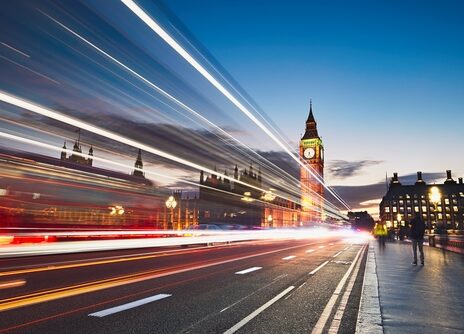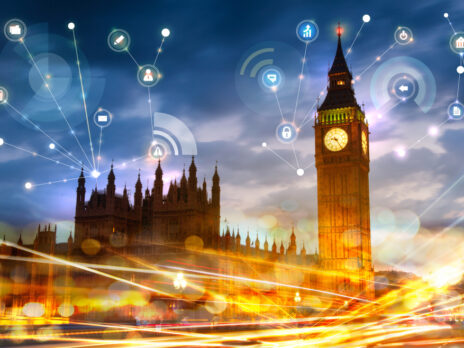
This month Emmanuel Macron spoke to Vladimir Putin for the first time since September 2022. Even in the final days leading up to the Russian invasion of Ukraine, the French president had worked to keep a line of communication open with the Kremlin, and in a two-hour call on 1 July, this year, he again pressed Putin to seek the path of peace. For Macron believes that even if there is no common ground with his interlocutor, Paris should at least act as a bridge-builder and pivot of multilateral relations. It was in this same spirit that he responded to Donald Trump’s abrupt desertion of the G7 summit in June, when the French president assured reporters that Trump had left to firm up a ceasefire between Iran and Israel. Yet, if Macron thereby suggested that he was au fait with the discussions, Trump slapped down even this face-saving exercise: the French president was “publicity seeking” but “always gets it wrong”, the US president snarled on Truth Social.
Mattering on the international stage means a lot to the French president. On this week’s state visit to Britain, he will likely receive a royal welcome and address parliament. He will find a politically like-minded ally in Keir Starmer. Beyond a renewed focus on military cooperation, the two leaders are expected to confirm a deal on tightening migration controls and stopping the flow of “small boats”. In what has been dubbed a “one in, one out” arrangement, deportees from the United Kingdom, returned to continental Europe, would be exchanged with migrants on French soil who have a right to cross the Channel. Damned by some other European Union member states – with leaders in Italy, Spain and Greece wary of France signing a bilateral deal that could affect the whole EU – the mooted pact with London also exposes Macron’s difficulties in directing either French public opinion or the EU as a bloc.
Well into the latter half of his second term, Macron’s international standing also matters so much to him because he has shed influence at home. While Macron has long insisted that he will press on with domestic reforms “till the last quarter-hour” of his term, which ends in 2027, he is now hobbled by his lack of support in the National Assembly. Re-elected president in April 2022 in a run-off against Marine Le Pen, before he lost his overall parliamentary majority eight weeks later, Macron’s authority cratered in summer 2024 after he made an ill-judged call for snap elections. Ever since then, his weak minority governments have been on life support – or, more specifically, depended on the goodwill of their political opponents. On 1 July, his prime minister, François Bayrou, once again survived a confidence vote only because Le Pen’s party, National Rally (RN), abstained.
Macron’s stagnant position is a far cry from his first run for election, when he cast himself as the dynamic alternative to both a “blocked political system” and to Le Pen’s nationalist camp. He had announced his first presidential bid at a crucial moment in November 2016, just two weeks after Trump’s election. With the Brexit referendum fresh in people’s memory, he staked his agenda on the “openness” and “reforms” that could make globalisation work. A technocrat by training, Macron nonetheless presented himself as an “outsider” who would lead a “democratic revolution” against the old parties. In his insurgent claim to transcend the left-right divide, Macron’s early rhetoric hit familiar populist notes while also challenging the nationalists more commonly called populist. He spoke of refusing to bow to the status quo or to the inevitability of the rising far right. He spoke as if he could direct events: what aides called a “Jupiter”-like stance.
Almost a decade on, this has turned out not to be true. Rather, it is events – and deeper weaknesses of the French state, as well as Europe – that have shaped his presidency. Macron once epitomised the philosopher Nancy Fraser’s definition of a socially liberal, pro-business “progressive neoliberalism”. Yet faced with a series of crises, he has retreated into more conservative positions on everything from immigration to climate policy. Macron has almost parodied a De Gaulle-esque idea of a strong French leader at the heart of Europe, but in practice he has not managed to convert bold intentions into either a renewed social consensus or a revitalisation of the EU. His tactical misstep in calling snap elections in 2024 only brought the malaise more clearly into view. With less than two years left in office, and with the nationalist right looking increasingly strong, Macron says that his job is to maintain “stability” – an implicit recognition that his presidency has stalled.
Speaking outside a United Nations conference in Nice in June, Macron seemed prickly about the idea that his snap elections call had deepened France’s political crisis. “It would be a little easy to blame the president for how the French voted,” he said. Macron had announced that vote in the name of winning a fresh mandate – only for the run-off results on 7 July 2024 to produce a splintered parliament in which no coalition was close to an overall majority. If this had “not helped clarify things” as he hoped, Macron insisted, the resulting gridlock should also be blamed on “the intransigence among political forces”. Indeed, he added, “some of them had previously claimed that the president has too much power”, but now themselves refused to take responsibility. He refused to rule out holding further snap elections before 2027, though it is unclear that such a move will do much for his own allies’ fortunes.
By most evidence, the French are gloomy about the future. An Ipsos poll late in 2024 found that 87 per cent believe the country is “in decline” though only 34 per cent considered this “irreversible”. More broadly, surveys show worsening faith in public services, political parties and democratic institutions. While indicators of public optimism improved upon Macron’s initial election, they have since worsened, and his own ratings have slumped under 30 per cent. Scepticism is warranted about claims that he is uniquely divisive: his predecessor, François Hollande, had such poor ratings that he didn’t even seek re-election, and the president before that, Nicolas Sarkozy, risks a jail sentence over charges of corruption. Still, Macron’s arrogant posture, and his pushing through of unpopular reforms, have heightened the perception of a man detached from public opinion.
The two most illustrative flashpoints of his tenure were the November 2018 fuel-tax hike, which sparked the gilets jaunes protests, and the 2023 rise in the retirement age. In both cases, Macron’s allies could cite deeper justifications: France does need to lower its dependence on fossil fuels, and the ageing population requires some kind of rebalancing of the pension bill. More questionable were the government’s assumptions about whom the cost should fall upon, as well as the harsh repression of the resulting protests. Such measures especially contrasted with Macron’s removal of taxes on the wealthiest households and on businesses in the name of economic stimulus. The fact that growth prospects have remained poor, and that public debt has continued to rise – especially due to pandemic-era spending – have ensured that what were called “difficult choices” achieved little public buy-in. If Thatcherism won some new working-class support through home ownership, even as it attacked trade unions, Macronism can boast of no similar trade-off. For Thomas Piketty and Julia Cagé, it has “the most bourgeois electorate in history.”
France’s fiscal position is not good. It benefited far less from EU post-pandemic funds than neighbouring Italy, and today its budget deficit (at 5.8 per cent) is at almost double the EU target of 3 per cent. It has committed to reaching this level by 2029, but progress demands austerity – or tax rises – throughout the rest of Macron’s term. Since his own supporters control less than one-third of seats in parliament, and do not have a majority even when aided by the conservative Republicans, any budget can pass only with the acquiescence of other, opposed parties. In December, then-prime minister Michel Barnier’s coalition was felled just three months after taking office. Under his replacement, Bayrou, both the Socialists and the RN have grabbed concessions in exchange for abstaining in key votes, vaunting their own “responsibility” rather than bringing down the government at the first opportunity. Still, these parties’ patience may not last long, as demands for budget cuts become more pressing, and the opportunity for fresh elections arises.
Could Macron be credited with a great balancing act: forcing these parties to obey his priorities, and even defanging the far right? The snap elections were widely interpreted as a move to erode the RN. On this reading, even if Le Pen’s party had entered government, it would have had to make tough choices rather than just carp from the sidelines. Upon nearing high office, RN has adopted less radical positions on economic policy, far from the heady days of the mid-2010s when it flirted with Frexit. The party president Jordan Bardella today speaks of “order in the public accounts as well as in the streets” – and the Macron camp treats it as a legitimate institutional actor. His prime ministers routinely sound out Le Pen’s opinion; they have repeatedly leaned on RN in confidence votes; in December 2023, for the first time, an immigration bill passed only thanks to RN votes – following the harshening of its provisions on welfare for migrants.
Such votes, and the surrounding political rhetoric, make it hard to credit the idea that Macron has surpassed the old left-right divide, or reined in the excesses of Le Pen’s camp. Even the Socialist governments of the 1980s worried about dangers to French national identity and attempted to assert a new model of republican inclusiveness. It is nonetheless remarkable that a nominally liberal administration like Macron’s should quite so often cast France as besieged by the threat of “decivilisation”. Today’s interior minister, Bruno Retailleau, a conservative, rivals Le Pen’s rhetoric. Macron and his allies do not confront the idea that France is being “submerged” by migration but promise that they will take the needed steps to stop this. The accusation that an “immigrationiste” left wilfully promotes migration in order to transform French society is used not only by Le Pen’s camp, but even by the president himself. Macron’s presidency may well turn out to not just have delayed the RN’s arrival in power, but also to have prepared a soft landing.
The current call for tougher migration control responds to the mood of large parts of the French public – and the narrative of France’s Fox News-esque channels like CNews. But this also points to limits of Macron’s authority. Despite claims to be the “Jupiterian” master of the political weather, he has routinely been caught off-guard by events. Where he called snap elections hoping that voters would offer clarity, instead they elected a fragmented parliament. Where he centered his agenda on reining in the welfare bill, instead weak growth and pandemic-era costs pushed public debt to historic highs. If he wanted the old corporatist France to become a “start-up nation”, instead private business has become more reliant on state and EU support.
The same can be said for his role as a world leader. If Macron spent years seeking dialogue with Putin, or supported Israel while criticising Benjamin Netanyahu, what effect did this have on either state’s policy? Macron called for the EU to secure its strategic autonomy, but European countries now only commit to rearmament under Trump’s threats to disengage. Far from leading the EU as a green superpower, Macron recently watered-down its emissions-cutting targets.
It is as an EU leader that Macron will most claim a legacy, in the spirit of his 2017 Sorbonne speech calling for Europe to stand stronger. Returning to those remarks at the Sorbonne last year, Macron hailed the EU’s successes in the pandemic response, breaking its reliance on Russian fossil fuels, and developing common planning on everything from the green transition to military preparedness. Since the pandemic, European collective investment has more firmly established itself – albeit mainly because Germany has changed tack, including this year on defence spending. Brexit-style splits are no longer on the agenda. Yet the EU also emerges from the last decade looking weaker in important ways. On everything from electric vehicles to AI, the bloc lags behind the US and China, and in neither the Middle East nor Ukraine wars has it shown itself to be a real diplomatic superpower.
What next for France? Macron is not allowed to enter the 2027 presidential contest, and currently Le Pen is also legally barred from running (as a result, Bardella surely will stand). A host of former Macron allies, from the more liberal Gabriel Attal to the Gaullist Édouard Philippe, are touted as candidates, as is hardline ex-interior minister Gérald Darmanin and incumbent Bruno Retailleau, who was recently elected the Republicans’ leader. If a host of parties and individuals have at one point been part of the president’s camp – known as Macronie – there seems to be little chance of a joint candidate in 2027, at least in the first round. Many of the former allies now have poor relations with Macron, and the political cohesion of this camp, once he is no longer president, is uncertain. He may fancy himself as a De Gaulle figure, called upon to fix the nation’s – and the world’s – messes. And perhaps he will be summoned to run once again in 2032 after some other president has brought havoc. Yet Emmanuel Macron’s record in office, low poll ratings, and the flop of his remaining presidency, make an unconvincing case for him to be the man of providence.
This article appears in the 09 Jul 2025 issue of the New Statesman, The Harbinger





